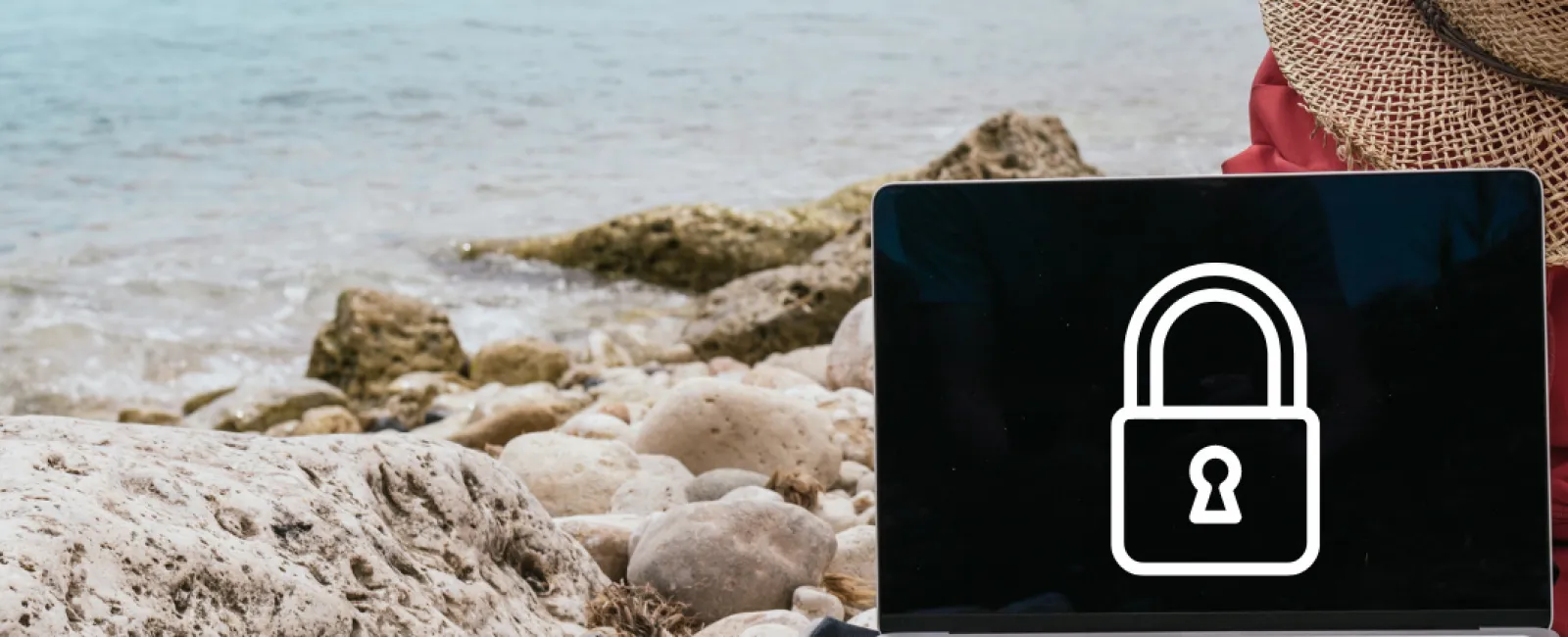Summer is a prime time for business owners and employees to take a well-deserved break from the office. Even with "out of office" email responders activated, many people still check in on work periodically while traveling. Unfortunately, working outside the office—whether it's a quick check-in during vacation, connecting to the Internet at a local coffee shop, or handling business while on a trip—can pose significant cybersecurity risks. If you or your team will be accessing work emails from the airport or network documents in a hotel lobby, it's crucial to adhere to strong cybersecurity practices to protect your company's network from nearby hackers.
In this blog post, we will outline essential cybersecurity best practices you should follow before and during any trip to safeguard your network from cyber threats.
Why Cybersecurity Is Crucial While Traveling
Cybersecurity might not be the first thing on your vacation checklist, but neglecting it can turn a dream getaway into a nightmare. Cybercriminals are well aware that summer is a prime time to strike, as people tend to lower their guard while on vacation. Most vacationers focus on enjoying their time away from the office rather than following cybersecurity best practices, making them easy targets for hackers.
To minimize the risk of a cyberattack while traveling, here are some best practices to share with your team members who might connect to the Internet during their vacation.
Before You Go:
- Back Up Your Data: Ensure you have copies of your data in case your device is lost or damaged.
- Update Your Software: Make sure your operating system, web browsers, and apps are updated to the latest versions to defend against malware.
- Protect Your Devices: Always lock your device with a PIN, passcode, fingerprint, or facial recognition. Set this up before traveling to protect your information if your device is unattended.
- Enable "Find My Phone": This feature allows you to locate your device if lost and remotely wipe data or disable the device if necessary.
While Traveling:
- Use a Virtual Private Network (VPN) A VPN encrypts your Internet connection, securing your data even on public WiFi networks. Set this up before you leave and use it whenever you access the Internet.
- Avoid Public WiFi: Public WiFi networks are hotspots for cybercriminal activity. Avoid using them unless you have a VPN.
- Manage Location Services: Turn off location services when not in use and be cautious about sharing your location on social media.
- Enable Multifactor Authentication: MFA adds an extra security layer by requiring a second verification form. Enable this for all sensitive accounts before traveling.
- Disable Auto-Connect Features: Prevent your device from automatically connecting to wireless networks by disabling this feature. Only connect to trusted networks.
Taking these simple precautions can help you enjoy your vacation without worrying about cybersecurity issues. However, it's essential to recognize that these steps aren't foolproof. To truly ensure your company's cybersecurity, consider working with a professional IT team that can monitor your network 24/7, patch vulnerabilities, and alert you to suspicious activities.
By following these guidelines, you can relax and enjoy your time off, knowing that your devices and data are secure.
To help you prepare for your vacation and have peace of mind knowing your business is secure while you or your employees are working remotely, call us at 866-214-8324 or click here to schedule a FREE consult with our cybersecurity experts today. We'll evaluate your current cybersecurity solutions, identify potential vulnerabilities and help you implement a strategic security plan to keep your company safe.




